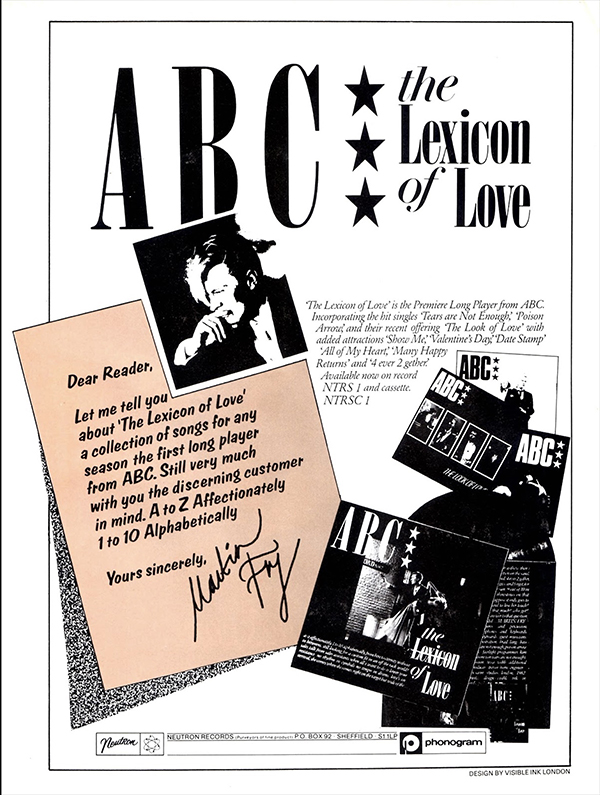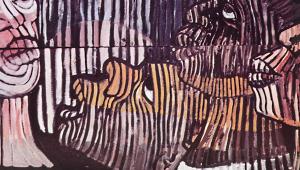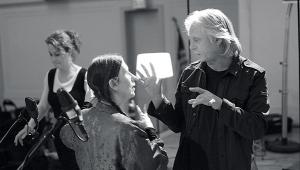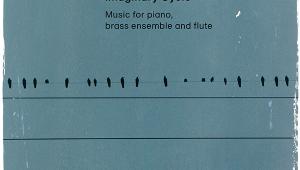ABC The Lexicon Of Love

Like a lot of bright, shiny things, ABC and their defining debut album, The Lexicon Of Love, were created out of something a good deal less glamorous. The grim-up-north narrative that is wheeled out as a backdrop to so much provincial punk and post-punk can be overstated, but there’s no doubt that when Stephen Singleton and Mark White’s avant-garde electronic outfit Vice Versa morphed into ABC with help from former fanzine writer turned frontman Martin Fry, they wanted to offer an escapist vision of pop for trying, recessionary times. They also rejected old school approaches to music-making.
Escaping the Steel City
‘We wanted to separate ourselves not only from the world of rock ’n’ roll and leather trousers, but also from Sheffield’, Fry has since said, referring in the latter case to the scene in his adopted hometown (he’s originally from Stockport) centred around the austere sounds of Clock DVA, Cabaret Voltaire and The Human League – before the last of those bands also turned their aesthetic gaze popwards.
‘We were trying to fuse two worlds’, Fry told the magazine Classic Pop in 2022. ‘The worlds of Chic and Earth Wind & Fire with The Cure and Joy Division; black music with white music.’ The former influences would emerge the clear winner as ABC created a new pop blueprint for the 1980s. And contrary to some versions of events, it was their creative offspring, not the work of a visionary producer. Although Trevor Horn, who they subsequently hooked up with, is given credit for revolutionising their sound and adding an all-important sonic polish, they’d already proved their chartworthy songwriting chops by the time the erstwhile Buggles and Yes man came on board.
Debut single ‘Tears Are Not Enough’ had been a Top 20 hit in the autumn of 1981, showcasing a bright, ritzy brand of horn-spattered groove pop that seemed to have one foot in the Britfunk scene populated by groups such as Freeez and Level 42, and another in the synthpop pretensions of the New Romantic movement. However, as Fry explained, ‘At the core of it was a mentality that said, “Right, we want to take on the world”. We were saying: “Pop music is this. It’s polished, it’s emotional, it’s going to compete with Cole Porter and those guys”’.
The band then enlisted Horn to produce their second single ‘Poison Arrow’ with a view to also working on the album it would form a part of, The Lexicon Of Love. Fry recalled, when speaking to The Strange Brew podcast in 2023, ‘We said to Trevor that we wanted it to be as good as Earth Wind & Fire or Chic, all these brilliant disco records… the pocket, the beat, the rhythm’.
The Lyrics of Love
As well as having an eye on the dancefloor there was also a strong desire to bring romance back to pop music – to second, third and fourth that emotion. On that front, there seemed to be a gap in the art-pop market. Post-punk and the burgeoning indie scene seemed keen to steer well clear of matters of the heart, and even the New Romantics seemed to reserve the ‘romantic’ part of the equation for their costumes rather than their lyrics.

Trade ad for the album from 1982
‘A lot of people were writing songs about unemotional, sort of fake sci-fi versions of the future back then’, Fry told The Strange Brew. ‘We wanted to do stuff that was emotional, like a lot of the R&B we listened to but [with] a twist. “Poison Arrow” is a song about how logically nasty it can get when somebody doesn’t like you, doesn’t love you. Or “The Look of Love”... It’s not like what the songs say in Hollywood movies.’












































